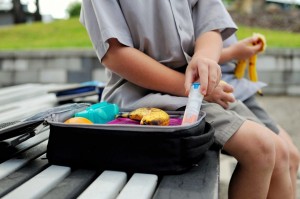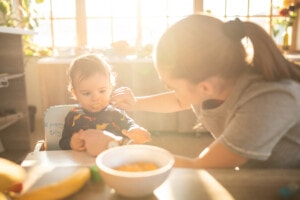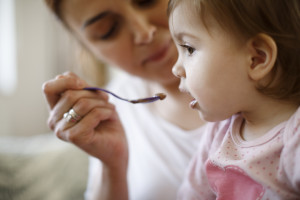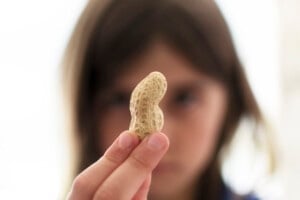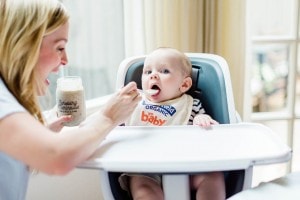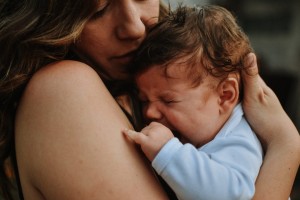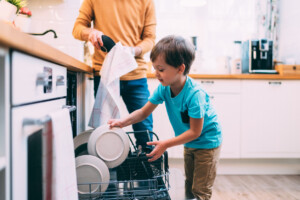Have fun. Be respectful. Know where the epinephrine auto-injectors are. Every parent discusses expectations with their kid before a drop-off playdate or party. If your kid has food allergies, leaving them in the care of another means there are a few more things to worry about than whether everyone will “play nice.” So it’s important to keep in mind some party tips for kids with food allergies.
It is difficult to relax when your little one is out of sight with potential food allergens lurking around them. You want them to learn autonomy and how to advocate for themselves, but the dangers of food allergy reactions are very real. These tried-and-true tips will help your kid’s drop-off party or playdate be a success.
Talk to the Host
The first party tip for kids with food allergies is to talk to the host well in advance. Clear communication about their allergies is critical. Let the responsible adults know:
- What food allergies your child has
- How to spot a reaction quickly
- How to correctly treat the symptoms
- What the following steps should be
Tell them what common foods they can’t have, and – if it makes you more comfortable – offer to pack food for your kid. (Yes, that includes a cupcake if the birthday cake contains allergens.)
Talk to the host about what they’re planning to serve. You may be surprisingly relieved by the menu – or you may be able to suggest some delicious allergy-free options that everyone can enjoy.
Talk to Your Kid
Parties are great opportunities for your little one to practice publicly managing their allergies and reinforce good habits like hand washing. Another party tip for kids with food allergies is to explain to them that, without you there to police plates, they are in charge of their health. This means they will have to:
- Speak up. Occasionally well-meaning family and friends can mistake a kid’s severe food allergy for picky eating. So, teaching your kid how to politely refuse food that might not be safe is super important.
- Stay alert. Accidental cross-contamination is a common problem at events with many people. Your child needs to learn how to keep their plate separate from others.
- Be prepared. Rehearse with your kid ahead of time. Have them explain their allergies and why they need to eat “different” food. This will help them protect themselves and give them the confidence to last their lifetime.
BYO Everything
With so much for hosts to think about, bringing your own (BYO) food may be easier, especially if your kid has multiple allergies. This can help remove the pressure and make your child feel safer. Try to:
- Label all containers with your kid’s name and contents
- Pack your kid with food items that don’t need a lot of prep before serving (the hosts will be grateful)
- Include their favorite treats, so they don’t feel left out if they can’t partake in the party food
- Check that your kid sees the containers before the party and knows what to look for
Even with home-packed food, having a responsible adult supervise while kids eat is always a good idea.
Check Your Meds
Preparing to place your kid in the care of another is the perfect opportunity for some medication housekeeping. Most anaphylactic reactions happen outside the home.1 So, it’s vital to know that all your auto-injectors are current and that the solution in the viewing window is clear and not cloudy.
During an anaphylactic reaction, a second dose might be needed if symptoms don’t go away after 5-15 minutes.2 This means parents and party hosts must have at least two auto-injectors. Don’t have what you need? Now is the time to make sure you update your supply.
Ask your host if they know how to use an auto-injector. If not, you can explain how or send them links to helpful websites like healthychildren.org, which has a step-by-step guide. There are also plenty of videos on YouTube, like this one:
Offer to Stay
Not every host will feel comfortable wielding an auto-injector or policing kids’ snacks. And not every kid is going to feel ready to advocate for themselves in an unfamiliar location.
Let your host know that you, or a close family member, can be there to help. Also, if there is a cost associated with the party (like a venue ticket), offer to pick up your tab.
Your kid might feel more comfortable having you around, and you might feel more confident knowing they’re safe. This could also be an excellent opportunity to educate another parent about raising a kid with food allergies—and the host might appreciate the extra set of hands!
Time to Review and Confirm
So, the day has arrived, and you’re about to drop off your kid for a few hours of fun and games. Your stress level might rise, but there are three final things you can do to ensure your kid is happy and safe.
First, double-check that you have everything:
- Snacks in well-labeled containers
- Both sets of auto-injectors
- Cell numbers of the party host
- Information for the host about your kid’s emergency care plan and how to recognize symptoms of an allergic reaction
Second, remind the host what your kid’s allergies are, how to spot a reaction, and how to respond. Show them exactly where the auto-injectors are packed and run over how to use one. Even if the host has done their homework and feels comfortable caring for your kid, tell them anyway; it will ease your nerves, too.
Third, talk to your kid. Remind them to advocate for themselves, explain what they need to know to stay safe – and wish them a great time! They may not be able to eat a slice of birthday cake, but they can bring their favorite snack and play on the bouncy castle to their heart’s content.
With all the prep complete, you can drive away knowing you’ve done everything to ensure your kid has a super awesome, happy, and safe time.

























